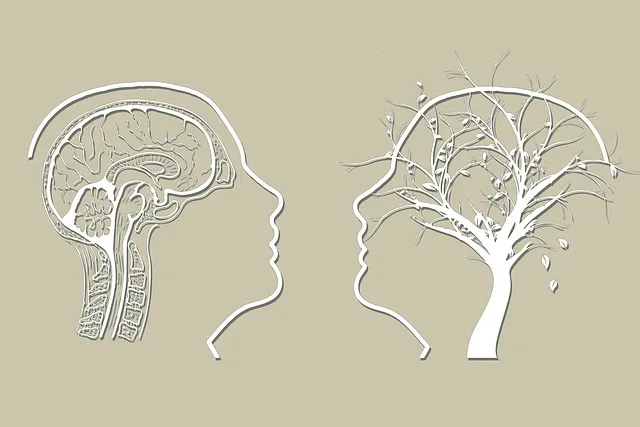Cultural sensitivity is a critical yet often overlooked aspect of quality mental healthcare, particularly within Kaiser Permanente's Broomfield behavioral health services. Barriers such as a lack of cultural competence training can lead to miscommunications and hinder personalized care for diverse patients. To address this, Kaiser Permanente should integrate evidence-based practices like Mind Over Matter principles into provider training. This approach enhances patient outcomes, strengthens therapeutic relationships, and promotes the well-being of both patients and providers by enabling professionals to better understand and respect individual cultural contexts. Community engagement through targeted outreach programs further breaks down cultural barriers, encouraging open communication for effective treatment plans.
In today’s diverse society, cultural sensitivity in mental healthcare is paramount. The impact of cultural diversity on mental health care cannot be overlooked, as it shapes access, communication, and treatment outcomes. This article explores strategies for improving patient experiences through culturally competent practices, highlighting the success of Kaiser Permanente Broomfield’s behavioral health services. We’ll discuss barriers to cultural sensitivity, evidence-based approaches, and how community engagement enhances patient outcomes, drawing insights from innovative leaders like Kaiser Permanente.
- Understanding Cultural Diversity and Its Impact on Mental Health Care
- Kaiser Permanente Broomfield: A Leader in Culturally Sensitive Services
- Identifying and Overcoming Barriers to Cultural Sensitivity in Healthcare
- Evidence-Based Practices for Providing Culturally Competent Care
- Enhancing Patient Outcomes through Cultural Sensitivity and Community Engagement
Understanding Cultural Diversity and Its Impact on Mental Health Care

Cultural diversity is a significant aspect of modern society, and it has a profound impact on mental healthcare. At Kaiser Permanente behavioral health services Broomfield, we recognize that individuals from various cultural backgrounds may have unique perspectives on mental illness and recovery. This understanding is crucial when providing effective care. For instance, what constitutes healthy emotional regulation in one culture might differ vastly from another, affecting how individuals seek help and respond to treatment.
Therefore, integrating cultural competency training for healthcare providers is essential. By enhancing their knowledge about different self-care routines and their impact on mental health, providers can offer tailored support. This approach not only respects the diverse needs of our community but also promotes better outcomes in treatment. We strive to create an inclusive environment that values emotional well-being across cultures, ensuring everyone receives compassionate and culturally sensitive care.
Kaiser Permanente Broomfield: A Leader in Culturally Sensitive Services

Identifying and Overcoming Barriers to Cultural Sensitivity in Healthcare

Cultural sensitivity is a cornerstone of effective mental healthcare, but identifying and overcoming barriers to this sensitivity is crucial. One significant hurdle is the lack of cultural competence training in many healthcare programs, including those offered by Kaiser Permanente behavioral health services Broomfield. This gap can lead to misunderstandings and miscommunications between providers and diverse patient populations, hindering the delivery of personalized care that respects patients’ unique backgrounds and beliefs.
Moreover, burnout prevention strategies for healthcare providers must address these cultural sensitivities. Mental wellness is not a one-size-fits-all concept; it’s deeply influenced by an individual’s cultural context. By integrating Mind Over Matter principles and other evidence-based practices, Kaiser Permanente behavioral health services Broomfield can empower its providers to navigate complex cultural landscapes effectively. This not only enhances patient outcomes but also fosters stronger, more meaningful therapeutic relationships, ultimately contributing to the overall well-being of both patients and healthcare professionals.
Evidence-Based Practices for Providing Culturally Competent Care

Cultural sensitivity is a cornerstone of effective mental healthcare, especially within diverse communities like those served by Kaiser Permanente behavioral health services in Broomfield. To provide culturally competent care, mental health professionals must incorporate evidence-based practices that recognize and respect the unique cultural beliefs, values, and traditions of each client. This involves adapting therapeutic approaches to align with clients’ cultural contexts, fostering an environment where they feel understood and respected.
One such practice is incorporating Stress Reduction Methods and Emotional Intelligence techniques that are culturally responsive. For instance, mindfulness-based interventions can be tailored to incorporate spiritual practices from different cultures, enhancing their effectiveness. By promoting Emotional Intelligence, therapists can improve communication and understanding, enabling them to address cultural barriers to care and provide more personalized support. These evidence-based approaches not only improve clinical outcomes but also strengthen the therapeutic bond between healthcare providers and clients from diverse backgrounds.
Enhancing Patient Outcomes through Cultural Sensitivity and Community Engagement

Cultural sensitivity is a cornerstone of enhancing patient outcomes in mental healthcare. By integrating self-care practices tailored to diverse cultural backgrounds, Kaiser Permanente behavioral health services in Broomfield can foster an inclusive environment that respects and validates individual experiences. This approach not only improves access to care but also encourages open communication, leading to more effective treatment plans.
Community engagement plays a pivotal role in this process. Implementing successful community outreach program initiatives enables mental healthcare providers to connect with hard-to-reach populations, address cultural barriers, and promote understanding. Such efforts can significantly impact mood management, ensuring that all individuals, regardless of their cultural or ethnic background, have access to the tools and resources needed for optimal mental well-being.
Mental healthcare practices that embrace cultural sensitivity significantly enhance patient outcomes, as evidenced by Kaiser Permanente Broomfield’s leadership in providing culturally competent care. By understanding and addressing the impact of cultural diversity on mental health, integrating evidence-based practices, and fostering community engagement, healthcare providers can ensure inclusive services. The strategies outlined in this article, particularly focusing on Kaiser Permanente behavioral health services in Broomfield, offer a roadmap to improving access and quality of care for diverse communities.






